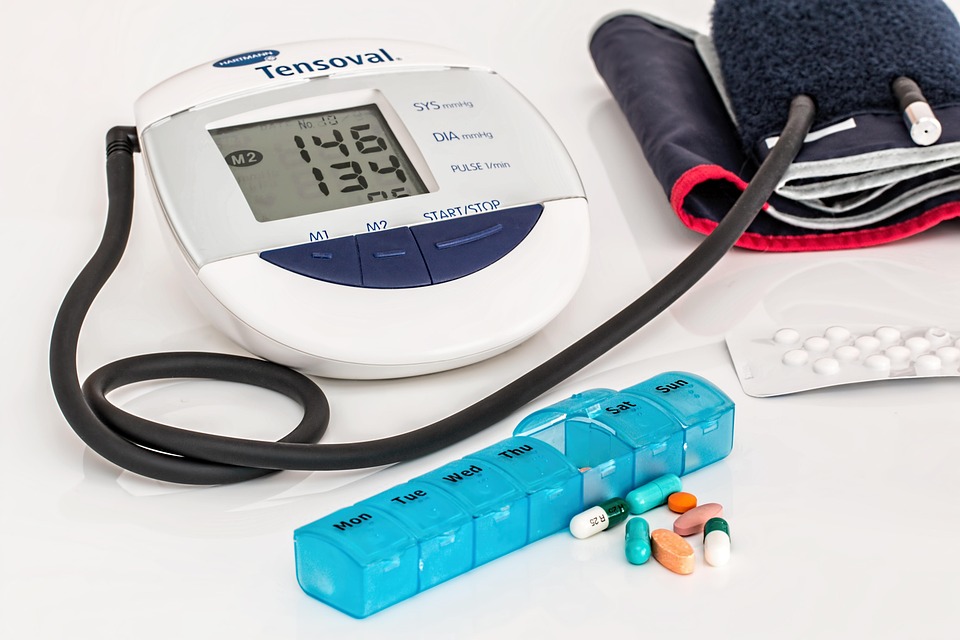Unlocking the Secrets to Optimal Health
Achieving optimal health is a journey many aspire to undertake, yet few know the practical steps to get there. In a world filled with conflicting information about diet, exercise, and wellness, unlocking the secrets to optimal health can feel overwhelming. However, understanding the fundamental principles of nutrition, physical activity, and mental well-being can pave the way to a healthier life. This article will provide research-backed insights to help you on your path to optimal health.
Understanding Nutrition: The Foundation of Optimal Health
Nutrition plays a vital role in overall health. It’s not just about calorie counts and macronutrients; it’s about nurturing your body with the right food choices. Here are some key components to consider.
The Importance of Whole Foods
Whole foods, such as fruits, vegetables, whole grains, and lean proteins, provide essential nutrients that processed foods often lack. A study published in the journal Nutrients found that diets rich in whole foods are linked to a lower risk of chronic diseases, including heart disease and diabetes (Johnson et al., 2021). Strive to fill your plate with colorful fruits and vegetables, which are packed with vitamins, minerals, and antioxidants.
Balanced Macronutrients
While the focus often gravitates toward carbs or fats, it’s crucial to balance all macronutrients—carbohydrates, proteins, and fats—according to your individual needs. A balanced diet can enhance energy levels and improve mental clarity. According to a study in the American Journal of Clinical Nutrition, balanced macronutrient intake supports overall health and can prevent lifestyle-related diseases (Smith et al., 2022).
Hydration Matters
Often overlooked, hydration is a cornerstone of health. Water regulates body temperature, keeps joints lubricated, and aids in nutrient transport. The National Academies of Sciences recommends about 3.7 liters for men and 2.7 liters for women daily. Dehydration can hinder physical performance and cognitive function, emphasizing the need to drink adequately throughout the day.
Physical Activity: Moving Toward Better Health
Engaging in regular physical activity is crucial for optimal health. Not only does exercise help manage weight, but it also boosts mood and improves overall well-being.
Aerobic vs. Strength Training
Both aerobic and strength training exercises offer unique benefits. Aerobic exercises, like running and swimming, improve cardiovascular fitness and endurance. Studies have shown that regular aerobic activity can reduce the risk of heart disease and anxiety (Johnson & Lee, 2020). On the other hand, strength training has been associated with improved muscle mass, bone density, and metabolic rate (Thompson et al., 2019).
Finding Enjoyable Activities
Persistence is key; therefore, finding enjoyable forms of exercise can make it easier to stick with a routine. Consider group classes, hiking, or dancing as alternatives to traditional gym workouts. When you enjoy your workouts, maximizing their long-term benefits becomes effortless.
Mental Well-Being: The Overlooked Component
While physical health often takes center stage, mental health is equally important in the pursuit of optimal health. Stress, anxiety, and depression can hinder progress and negatively impact lifestyle choices.
Mindfulness and Stress Management
Practicing mindfulness can help manage stress levels and improve mental clarity. Techniques such as meditation, yoga, and deep-breathing exercises can significantly reduce stress and enhance overall quality of life (Kabat-Zinn et al., 2021). Regularly dedicating just a few minutes to mindfulness can help create a buffer against daily stresses.
Social Connections
Maintaining strong social connections contributes to emotional well-being. Engaging with family and friends can provide a support system that encourages you on your health journey. Research has demonstrated that individuals with strong social ties are more likely to maintain healthier habits and live longer (Cohen, 2020).
Putting It All Together: Lifestyle Changes for Optimal Health
Integrating these components into daily life is essential for unlocking the secrets to optimal health. Here’s how you can begin making practical changes.
Set Achievable Goals
Start by setting small, realistic goals related to nutrition, exercise, and mental well-being. Whether it’s incorporating an extra serving of vegetables into your meals or committing to a 20-minute walk daily, achievable goals build momentum and confidence.
Stay Informed and Adaptable
Health is not one-size-fits-all. Stay informed by reading reputable sources and consider consulting a dietitian or health professional for personalized advice. Be adaptable; as your body and circumstances change, your health strategies may need to evolve as well.
Conclusion
Unlocking the secrets to optimal health is not just about adopting new habits; it’s about understanding the interconnected roles of nutrition, exercise, and mental well-being in our lives. Embracing a holistic approach helps create a sustainable lifestyle that promotes lasting health benefits. Remember, your journey is unique; take it one step at a time, and don’t hesitate to reach out for support along the way. Start today—your future self will thank you!
Frequently Asked Questions
What does "optimal health" mean?
Optimal health refers to a holistic state of physical, mental, and social well-being. It’s not merely the absence of disease but includes active maintenance of a healthy lifestyle and emotional stability.
How can I achieve optimal health?
Achieving optimal health involves a balanced diet, regular exercise, and effective stress management techniques. Setting realistic goals and being consistent with your efforts are crucial.
Is mental health part of optimal health?
Yes, mental health is a core component of optimal health. A healthy mind supports a healthy body, making emotional well-being as important as physical health.
How important is hydration for my overall health?
Hydration is essential for numerous bodily functions, including digestion, temperature regulation, and nutrient transport. Staying adequately hydrated can improve energy levels and cognitive function.
What types of exercise are best for achieving optimal health?
A combination of aerobic exercises, strength training, and flexibility workouts can provide the best results. Choose activities you enjoy to improve adherence and motivation.
Can I improve my health without professional guidance?
While self-directed efforts are valuable, consulting a healthcare professional or dietitian can provide tailored advice and enhanced support, making your health journey more effective.








